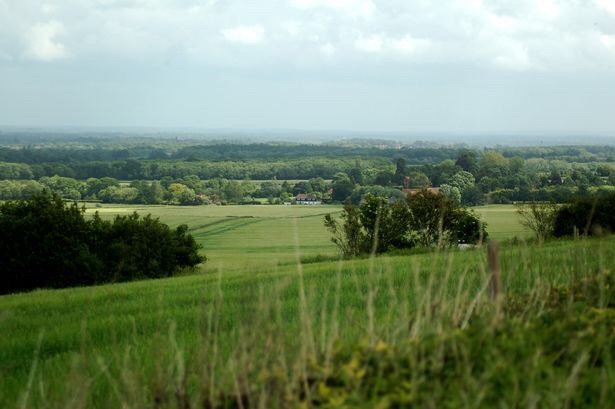
Villages and towns in England’s rural communities will be allowed to build starter homes for local residents as part of plans set out by the Chancellor of the Exchequer, George Osborne, and Environment Secretary, Elizabeth Truss in the Government’s first ever Rural Productivity Plan.
The plan, announced as latest figures show thousands of people are moving to rural areas, will set out measures to boost the rural economy by investing in education and skills, increasing wages, improving infrastructure and connectivity, and simplifying planning laws for rural businesses and communities.
Measures covered by the plan include:
Amending planning rules to allow Starter Homes to be built on Rural Exception Sites for the first time. This will allow local areas to allocate more sites for Starter Homes specifically for people who already live in the area, or have an existing family or employment connection to the area.
Working with private sector providers to assess alternative solutions to deliver broadband further into rural areas.
Improving rural transport connections by feeding the views of rural stakeholders into the second Road Investment Strategy for 2020 to 2025.
Ensuring fairer funding for rural schools and work with schools and colleges that are currently underperforming or ‘coasting’ to ensure that, where appropriate, they are entering into collaborative arrangements and formal partnerships to raise standards.
Encouraging rural Local Authorities and providers to make innovative early expressions of interest to deliver 30 hours of free childcare to working parents.
Setting a new ambition to provide high speed broadband to businesses in all Enterprise Zones in rural areas.
Considering proposals for increased devolution of powers and greater freedoms to maximise economic growth in areas across the country that put in place strong and accountable local governance.
Improving connectivity by providing improved transport connections for businesses and passengers in local areas with fifteen brand new routes on the Regional Air Connectivity funding shortlist.
CLA Director of Policy and Advice Christopher Price welcomed the proposals: “The challenge of delivering improved productivity in our rural areas is different to that in our towns and cities. We welcome the specific focus on rural areas in this announcement."
But the CLA said the plan 'lacked action' on rental homes.
“We need more homes in the countryside that first time buyers can afford and there is a big opportunity to improve on this. A pragmatic planning framework is critical to delivering this. We have long argued for greater flexibility in the use of rural exception sites and we will continue to work with Government to make this happen. However the plan lacks action on the important priority of increasing availability of homes to rent in rural areas."
Commenting on the launch, Chancellor of the Exchequer George Osborne said: “For too long the British economy has been reliant on businesses based in our cities and towns. We want to create a One Nation economy that taps into the potential of all parts of our country. That means setting the right conditions for rural communities and businesses to thrive, investing in education and skills, improving rural infrastructure, and allowing rural villages to thrive and grow.”
Environment Secretary Elizabeth Truss added: “Our rural areas could be generating billions more for the UK and providing many thousands of new jobs – this plan will make that a reality, unleashing the full potential of our countryside to create a true One Nation economy.
“We’re connecting the countryside to make it just as simple to run a business from Cornwall as it is in Camden. But it’s not just about transport and technology. Our plan will help us create thriving towns and villages where generations of families can open and expand their businesses, buy a home and educate their children at first class schools.”
Communities Secretary Greg Clark said: "We're determined to ensure anyone who works hard and aspires to own their own home has the opportunity to do so – whether they live in cities, towns or rural communities.
"But all too often young people find themselves exiled from the place they grew up as they are forced to move away to find a home of their own.
"That's why we're putting power directly in the hands of rural councils to give the go-ahead for new Starter Homes in their area so local young first-time buyers can continue to be a vital part of their communities."
To unleash the full potential of rural areas and improve the quality of life for people living in some of the most beautiful parts of the country, the government will deliver:
